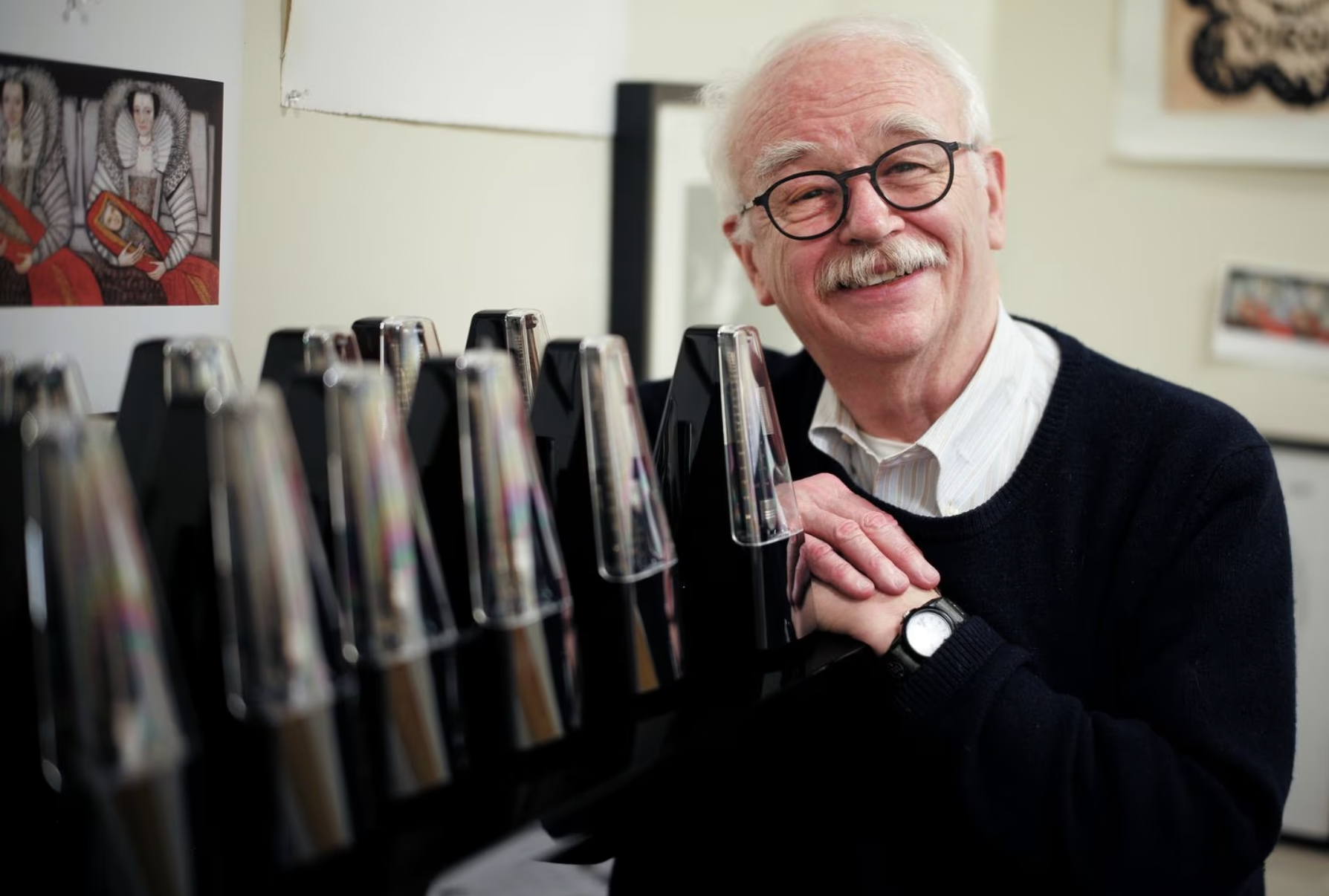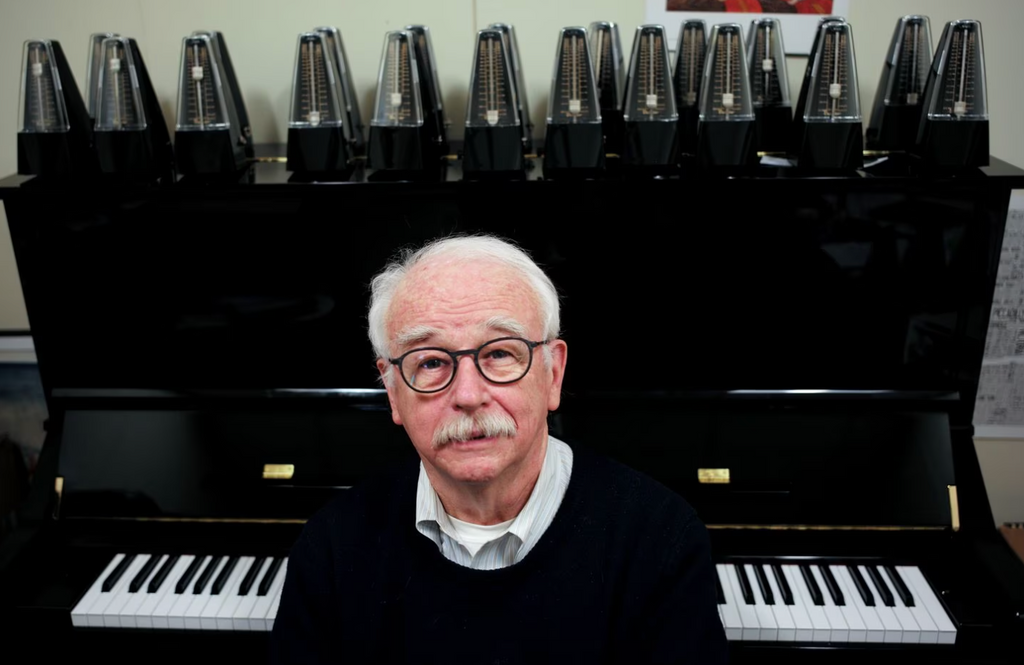Boston Globe feature: Tick-tock before there was TikTok: BU concert revives György Ligeti’s metronomic ‘Poème Symphonique’

Photos by JONATHAN WIGGS/GLOBE STAFF
Tick-tock before there was TikTok
BU concert revives György Ligeti’s metronomic ‘Poème Symphonique’
This article was first published in The Boston Globe on February 22, 2023. By David Weininger
Excerpt
At least initially, the black-and-white video looks like any other musical event of the time. The well-dressed audience members applaud politely as the musicians walk solemnly onto the stage. A conductor — who is also the composer of the piece — takes his place in front of them and gives a signal.
And that, perhaps, is when you realize that the “instruments” on stage are all metronomes — the mechanical, pyramid-shaped kind, with a swinging arm, dozens of them. The musicians wind them up as the audience grows curious and then a bit apprehensive. Finally, the conductor gives another signal, and the metronomes are set loose. The sound is like a fusillade of manual typewriters, or a hailstorm on a tin roof. The audience initially seems mesmerized, then amused, then bemused, and finally resentful, as if the joke is on them.
This strange happening is the world premiere, in the Dutch city of Hilversum, in 1963, of “Poème Symphonique,” a piece for 100 metronomes by the Hungarian composer György Ligeti, a product of Ligeti’s membership in the experimental art group Fluxus. The event was controversial enough that a Dutch TV broadcast of the video, planned for two days after the premiere, was canceled. “They showed a soccer game instead,” the composer noted drolly, some years later.
What is “Poème Symphonique”? Musical work or performance art? Seriously intended or a prank played on the gullible artistic establishment? These questions would be easier to answer if we could actually hear the piece. Videos exist, it’s true, but for a piece as atypical as this one, live performance is as necessary as it is infrequent.

Fortunately for Bostonians, Rodney Lister, a composer on the Boston University faculty, has been collecting mechanical metronomes over the last few years for just this purpose. Time’s Arrow, the BU new music ensemble he directs, will give a rare performance of “Poème Symphonique” next Tuesday, Feb. 28, at the school’s 808 Gallery.
Lister holds an enduring interest in experimental music and works for non-standard instruments, like the Ligeti or John Cage’s “Imaginary Landscape #4,” for 12 radios, which he’s performed. “At some point, I decided, if I was ever going to do the [Ligeti], I might as well start buying the metronomes,” he said during a recent telephone interview.
Doing these pieces “is kind of like early music,” he said, pointing out that the Cage is written for radios on AM frequency, and the Ligeti requires wind-up metronomes, “which hardly anyone uses anymore,” since a more accurate version is easily available on one’s phone. “So it’s kind of like doing Bach on original instruments.”
As for what’s really behind “Poème Symphonique,” Lister opined that it is, first and foremost, a case of the composer having some mischievous fun and “taking the mickey out of people.” But there are strong connections with the rest of the composer’s oeuvre, he added. The furious, clacking texture at the beginning of “Poème Symphonique” isn’t far removed from the dense “clouds of sound” that can be found in numerous other works.
And something remarkable happens the longer the piece goes on. As the metronomes begin to stop ticking and the texture thins out, the ear begins to recognize rhythms in counterpoint with one another. “All of which,” Lister pointed out, “is locked in with the kind of music he wrote.”
There’s also an inevitable degree of chance attaching to a piece that leaves so much up to the functioning of these rather imprecise machines (ask any musician). Lister remembered seeing a live performance at London’s Proms concert series. “There was the one little metronome that just wouldn’t have stopped, and they finally had to go and stop it,” he remembered. “I think that’s a facet of it, too, just, how long will it go on? It’s kind of uncontrollable.”
He noted that Time’s Arrow will also be performing a piece by the British composer Michael Finnissy for three violins, cello, and metronome, written at Lister’s request. BU students have also written works for metronome, so that the concert can be seen as part of the continuing legacy of “Poème Symphonique.”
Or, as Lister puts it more straightforwardly, “As long as they’re around, you might as well use them.”